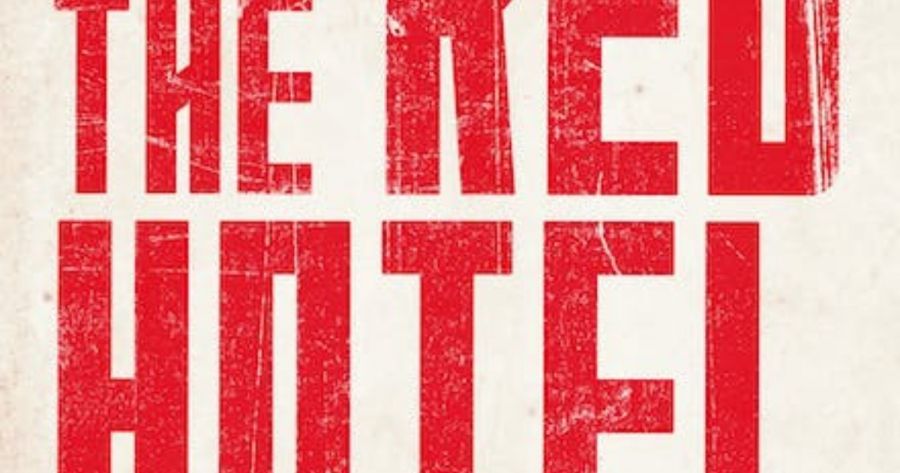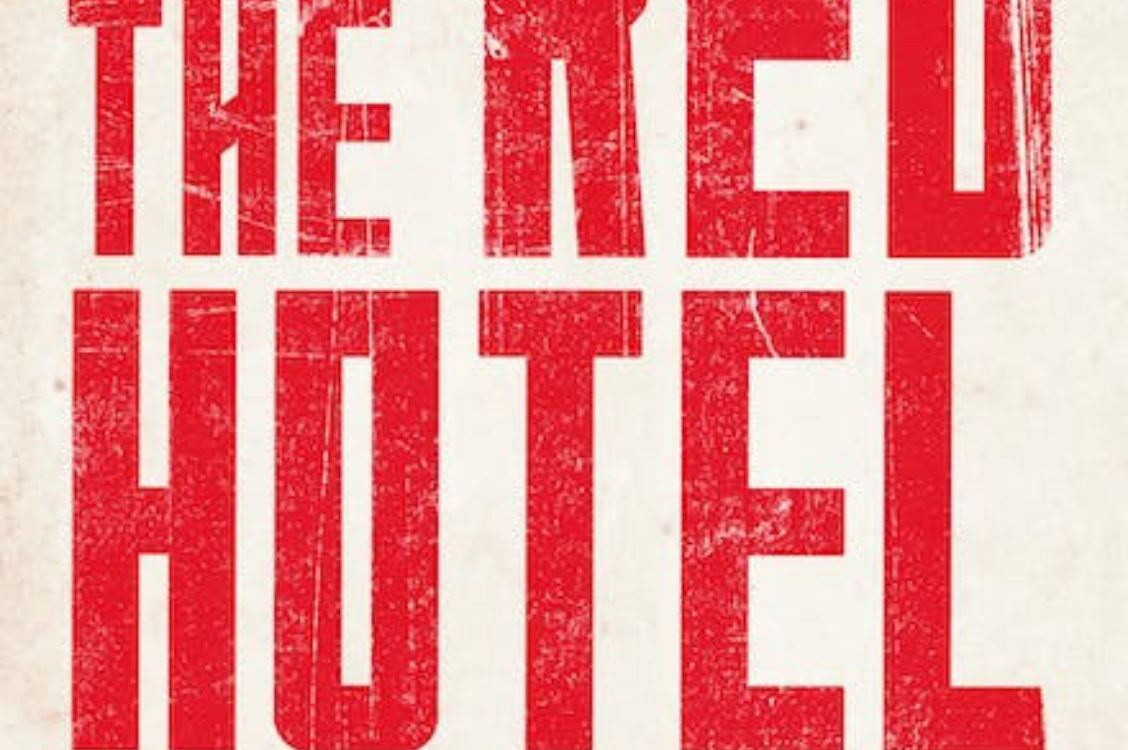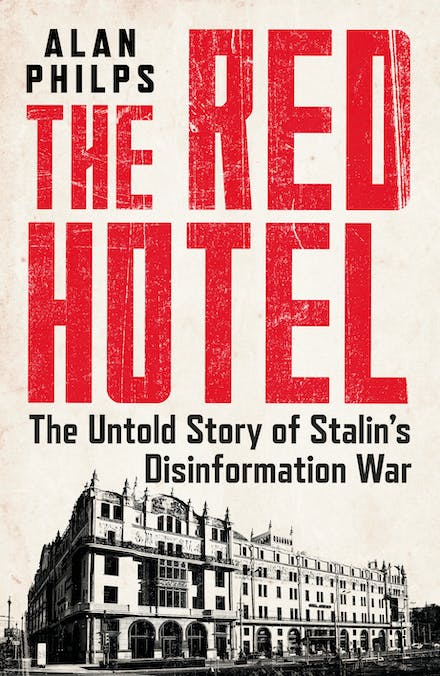
- Free Article: No
- Contents Category: History
- Review Article: Yes
- Article Title: At the Hotel Metropole
- Article Subtitle: Stalin’s manipulation of the media
- Online Only: No
- Custom Highlight Text:
Stalin really knew how to lock a country down. Western intelligence services had virtually no secret information sources in the Soviet Union in the 1940s, in contrast to the Soviets’ striking success with Kim Philby, the mole who held a senior position in British intelligence. Western diplomats in Moscow had no direct contacts with members of the Russian population, other than the various watchful helpers supplied by the state. During the war, there were no foreign tourists or visiting businessmen in the country, and just a few Western journalists. The journalists lived together in the Hotel Metropole in the centre of Moscow (the Red Hotel of the title of Alan Philps’s new book), drinking and lamenting the strictness of Soviet censorship and their inability to cover the war except from official handouts.
- Featured Image (400px * 250px):

- Alt Tag (Featured Image): Sheila Fitzpatrick reviews 'The Red Hotel: The untold story of Stalin’s disinformation war' by Alan Philps
- Book 1 Title: The Red Hotel
- Book 1 Subtitle: The untold story of Stalin’s disinformation war
- Book 1 Biblio: Headline, $34.99 pb, 451 pp
- Book 1 Cover Small (400 x 600):

- Book 1 Cover (800 x 1200):

For so-called war correspondents, it was the most boring job in the world. Cultivation of personal idiosyncrasy was one of the few outlets for creativity. Since almost all of the journalists later wrote books about their Moscow years, spiced with more or less bitchy comments about each other, there is plenty of material for Philps to go on in recreating their collective life in Moscow. A few of them, like Times correspondent A. T. Cholerton and Alexander Werth, later author of the classic Russia at War (1964), had good Russian and knew something about the society. Others, like the hapless Ronald Matthews, Catholic correspondent for the leftist British Daily Herald, were totally dependent on their Soviet secretary–translators. Ralph Parker, a journalist with MI6 connections, was seen as too pro-Soviet and was thought to have been ‘turned’ by the Soviets. There was even an Australian correspondent: Godfrey Blunden, reporting for the Sydney Daily Telegraph.
A few women turned up as correspondents to enliven the scene. Alice-Leone Moats, a tiresome young American socialite without journalistic experience, played up her family’s connection with US Ambassador Lawrence Steinhardt, who was embarrassed by the resultant gossip. British Charlotte Haldane, who actually did have journalistic credentials, was the separated wife of the well-known communist scientist J.B.S. Haldane.
To be a woman was to miss out on one of the main perks of the foreign correspondents’ life: provision by the Soviet authorities of a young, attractive, English-speaking secretary–translator–fixer, who generally became the journalist’s lover in addition to other duties. Matthews had the good luck to get Tanya Svetlova, who provided him with ‘a daily supply of journalistic colour and bottles of vodka, while also securing him a bigger room at the hotel, procuring a radio (possession of which was illegal for Soviet citizens in wartime) so he could listen to the BBC, and darning his socks’. They married in 1943 (good timing, as a few years later, marriages between Soviet citizens and foreigners were forbidden), and she left the Soviet Union with him the following year. Blunden was allocated Nadya Ulanovskaya, wife of a senior official in military intelligence, who, in the 1930s, had accompanied her husband to Shanghai (where they worked with the most famous Soviet spy, Richard Sorge) and New York. At Blunden’s request, Nadya broke the rules and took him to meet some real Russians, cultured friends of hers from the old upper classes who had many stories of Soviet terror to recount. After he left Moscow, he published a thinly disguised roman à clef about Nadya and her friends, A Room on the Route (1947).
Philps refers to this novel, but seems not to have read it. This is a pity, as it would have offered an additional view of Nadya, a central figure in Philps’s book as well as Blunden’s. (I am following Philps’s practice in referring to his female characters by their first name, and males by their last.) Whole chapters of Red Hotel summarise the memoir Nadya and her daughter Maya (a dissident who emigrated to Israel in the early 1970s) later published in Russian. Nadya’s story is indeed remarkable, even if one might take with a pinch of salt her self-image of unadulterated bravery, independence, and moral rectitude, which Philps reproduces. Tanya Matthews, who took over Matthews’s job as BBC correspondent in the Middle East after his death in the 1960s, was another remarkable woman whose story, as told in several books of memoirs for British audiences and summarised in Red Hotel, should not be taken as gospel.
Ambiguity was built into the job of these secretary–translator–lovers, who, regardless of any affection they might develop for their foreign charges, had, after all, been sent by Soviet authorities to keep an eye on them. The women must have been writing regular reports on their men, reports which, judging by those I have seen in the Soviet archives, were often shrewd and funny, a credit to the authors’ powers of observation and analysis, if not to their moral principles.1 The question of why they so often went ‘off message’, as Nadya did in taking Blunden to meet her friends, is interesting. Of course, being a police informer is not incompatible with having a personal agenda, as Tanya clearly did in her cultivation of Matthews. It was also not without danger: Cholerton’s long-time secretary–lover was abruptly arrested in 1943, while he was absent in England, and dispatched to the Gulag, and the same thing happened to Nadya a few years later, after Blunden’s departure and the subsequent publication of his book. Had Nadya and Tanya not been risk-takers, they probably would have sought other employment.
With a subtitle about Stalinist disinformation in time of war, Red Hotel ends by likening Stalin’s manipulation of the media to Putin’s attempts at information control during the current Ukraine war. No doubt the present Russian government has similar intentions, but Putin – with open borders and an internet that is not effectively restricted – is simply not in Stalin’s league. When Putin tries to spin the story one way, the Western media automatically reverses the spin. Imagine Putin’s men sending a bunch of Western journalists to a contemporary equivalent of the Katyn massacre site, showing them bodies, and telling them the Ukrainians did it. Nobody would believe the story for a moment, and if it got published at all in the Western press, it would simply be as an example of ‘Putin’s lies’.
Endnote
1. See Sheila Fitzpatrick and Carolyn Rasmussen, eds, Political Tourists (2008)


Comments powered by CComment